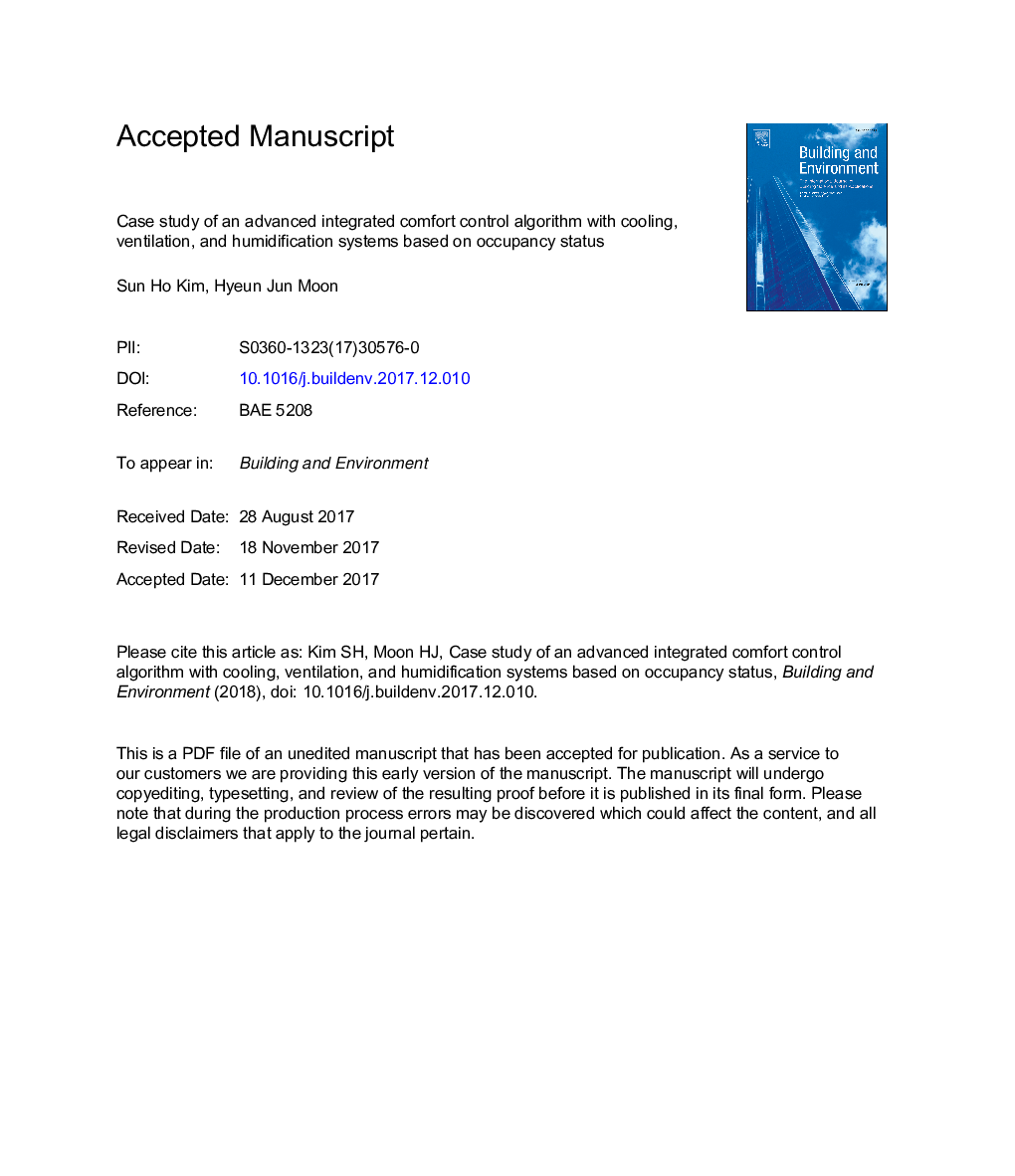| Article ID | Journal | Published Year | Pages | File Type |
|---|---|---|---|---|
| 6697940 | Building and Environment | 2018 | 45 Pages |
Abstract
The performance of the proposed control algorithm is experimentally compared with that of a conventional individual control method in terms of the thermal comfort and energy consumption. The results show that the advanced integrated comfort control system improves the thermal comfort and decreases the energy consumption. Specifically, Case 1 (active, hot, and mild humidity) exhibits a 6.3% energy reduction and 64% improvement in the thermal comfort. Case 2 (active, hot, and low humidity) shows a 21% energy reduction and 72% improvement in the thermal comfort. Case 3 (inactive, comfort indoors) displays a 7% energy increase and 31% improvement in the thermal comfort. These results confirm that the proposed advanced integrated comfort control algorithm could be useful for designing better space environmental control to ensure thermal comfort and energy conservation.
Related Topics
Physical Sciences and Engineering
Energy
Renewable Energy, Sustainability and the Environment
Authors
Sun Ho Kim, Hyeun Jun Moon,
